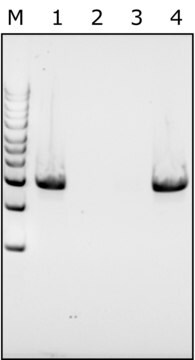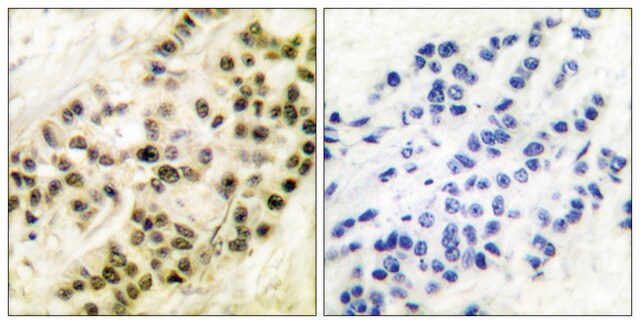L7386
Lysostaphin from Staphylococcus staphylolyticus
≥500 units/mg protein, lyophilized powder
Synonym(s):
Glycyl-glycine Endopeptidase
About This Item
Recommended Products
Product Name
Lysostaphin from Staphylococcus staphylolyticus, lyophilized powder, Protein 50-70 % by biuret, ≥500 units/mg protein
biological source
microbial (Staphylococcus staphylotyticus)
Quality Level
form
lyophilized powder
specific activity
≥500 units/mg protein
mol wt
25 kDa
composition
Protein, 50-70% biuret
packaging
pkg of (sold on basis of mg protein)
solubility
water: 2.00-2.10 mg/mL, clear to slightly hazy, colorless to light yellow
antibiotic activity spectrum
Gram-positive bacteria
application(s)
diagnostic assay manufacturing
diagnostic assay manufacturing
Mode of action
cell wall synthesis | interferes
shipped in
wet ice
storage temp.
−20°C
Looking for similar products? Visit Product Comparison Guide
General description
Biochem/physiol Actions
pH Optimum for activity: ~7.5
Unit Definition
Signal Word
Danger
Hazard Statements
Precautionary Statements
Hazard Classifications
Resp. Sens. 1
Storage Class Code
11 - Combustible Solids
WGK
WGK 3
Flash Point(F)
Not applicable
Flash Point(C)
Not applicable
Personal Protective Equipment
Choose from one of the most recent versions:
Certificates of Analysis (COA)
Don't see the Right Version?
If you require a particular version, you can look up a specific certificate by the Lot or Batch number.
Already Own This Product?
Find documentation for the products that you have recently purchased in the Document Library.
Customers Also Viewed
Our team of scientists has experience in all areas of research including Life Science, Material Science, Chemical Synthesis, Chromatography, Analytical and many others.
Contact Technical Service













